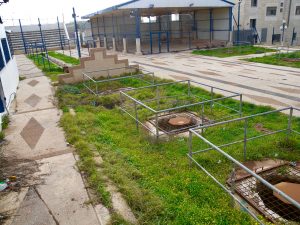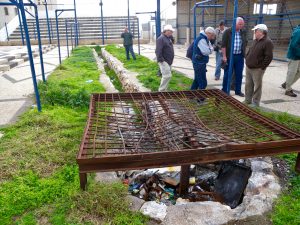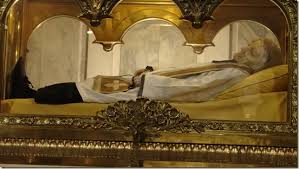Freedom to Serve
(Ex 12:1-8, 11-14; 1 Cor 11:23-26; Jn 13:1-15)
*******************************************
This celebration tonight begins the three great liturgical days of the year – what we call the Easter Triduum. This feast tonight, Holy Thursday, and indeed every Eucharist, has one message – love one another as Jesus has loved us. Our life is a gift to be given away. We are to be there for one another, and for the world.
Perhaps you noticed, as you listened to the readings, that there is a natural dynamic flow that connects each reading with the others.
The first reading from Exodus is all about the political liberation of the chosen people by the flesh and blood of a lamb that is sacrificed and consumed as sacred food.
The second reading from St Paul to the Corinthians identifies Jesus as the new Paschal Lamb whose flesh and blood is now present in the Eucharist he instituted at the Last Supper; the event that we celebrate this Holy Thursday. It is this Body and Blood of Christ that now liberates us spiritually from all our sin and sinfulness and that gives us new life through his Spirit.
The gospel of John pointedly substitutes the washing of feet in the place of the institution of the Eucharist in the Synoptics, the other three gospels. The message here is clear – it is in loving, selfless, sacrificial service to others that the dynamism of the Eucharist is to be found and lived out.

Samaritan sacrificial grounds
To sum up, the God who liberated the Hebrews from slavery in Egypt through the Passover Lamb, now liberates us from all sin and sinfulness through the true Lamb of God, Jesus Christ, and his love made present in the Eucharist. Interestingly, the Samaritans in the Holy Land still practice animal sacrifice, believing somehow that will make them holier. A Samaritan priest showed us the Torah they use, and then took us to the place where they perform their sacrifice – a series of pits covered with grates.

Samaritan sacrificial grill.
How blessed we are to offer to God not the flesh and blood of animals, but the sacrifice of God’s Son on the Cross, that revealed to us the depths of the Father’s love for us. That same loving God now missions us to go out and live the Eucharist through loving service of our fellow human beings and of all creation.
John Bell of the Iona Community in England invited a black South African woman to share her story on television. She was running an orphanage for children whose parents had died of HIV/AIDS. Her love and commitment to these children was total and unconditional. Her words were simple and direct. He asked her what she would like to leave behind as her legacy. She thought a moment and replied that the legacy she would like to leave behind would be to have spent everything she had, that she would meet God empty-handed because she had used up completely every gift that God had given her. She wanted to leave nothing behind except a little footprint that might help others find their way. In that way she was like Jesus, who came not to be served, but to serve.
Someone else who was like that was the Curé of Ars in France, known as St. John Vianney. He was famed as an insightful confessor and spent hours every day in the confessional. People would come to him from miles around, even from other countries in Europe, for spiritual direction and to celebrate reconciliation with him. He had great insight and sometimes startled some penitents with his intuition and knowledge of their inner life. His philosophy was to give everything away. He constantly gave away to the poor around him everything that he received from those who came to him for confession. Being a channel of God’s merciful love and giving away everything to the poor, was his way of living out the Eucharist.

Incorrupt body of St Jean Vianney at Ars, France
A familiar old hymn captures in one stanza the spirit of this Holy Thursday celebration: Called from worship into service; forth in his great name we go. To the child, the youth, the aged, love in living deeds to show.
So, as we celebrate tonight the gifts of priesthood and Eucharist given out of tremendous love by God to the Church, let us appreciate the Eucharist as a sacrament of God’s merciful, forgiving unconditional love, and as a commitment to show that love to all through selfless loving service.




Today I felt the love and heart warming heat right through my body when I received the Eucharist during the Celebration. That is the love by God and forgiving unconditional love and mercy by God. I was also speaking in tongues and shaking really strongly while kneeling in front the Tabernacle and the covenant which demonstrates Jesus Christ is about to be arrested and Crucified the next day. This was the end of the celebration of the Last Supper and Jesus showing his love as he washes the disciples feet. I had a very strong reaction during the celebration, but I can calm down. Amen.
Well thanks for the beautiful written homilies , teachings and advices everyday. This week is Holy Week so everything relates to the Father and his son Jesus as he is arrested, crucified and resurrected . We experience his sorrows by carrying his cross and be like Jesus Christ. You should have many blessings from the Lord besides me. Bishop enjoy your time .
Thanks for your messages on Jesus being crucified and dying on the cross . It is a powerful homilies for two days because I had a strong feeling and reaction during the celebration towards Good Friday.
Do you have a homily for Good Friday on your website ? I had a strong feeling when Jesus Died on the Cross and When I was adoring the cross when Jesus is nailed to the cross . I was shaking really strongly and crying during the possession. It is a time to experience his pain and sorrows when he is crucified on the cross and step in shoes. Feel the hatred and pain, sins and people who have hurt us and people who have caused us to sins . Amen This is another message and I like commenting on your homilies at least I have learned many lessons. Thanks Bishop Lavoie.